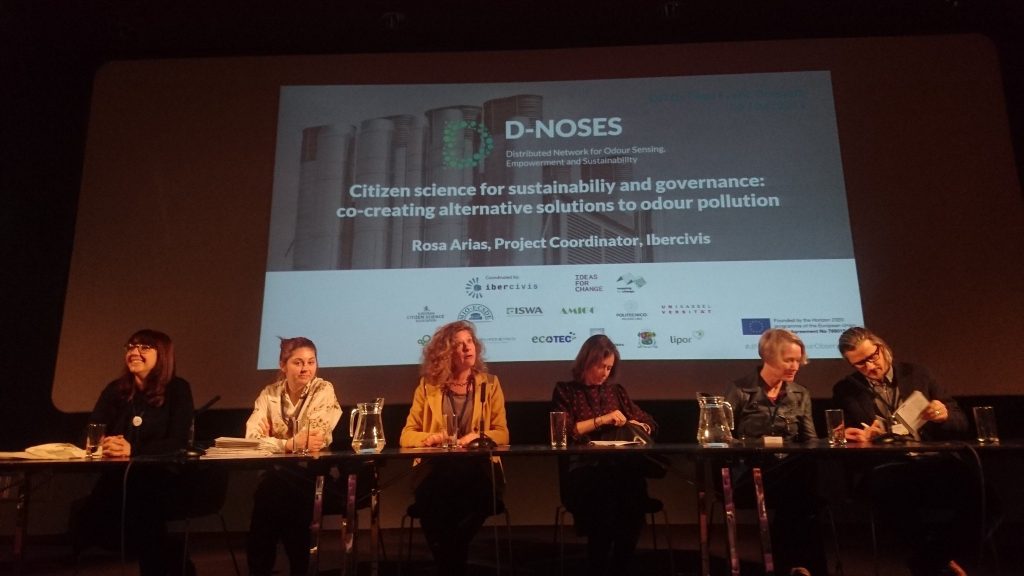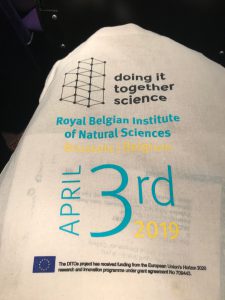
DITOs
Doing It Together Science (DITOs) organized many innovative events across Europe focusing on the active involvement of citizens in Citizen Science. Science universities and research institutions worked together with science galleries, museums and art institutions to engage people in more than 500 innovative workshops, exhibitions, and activities that were organized across Europe. With this project the eleven European partners demosntrated that citizen science is an accessible and fun way to explore the world around you.
Final Event
For their final event, the DITOs team brought together a number of other citizen science projects to present, exchange and debate their ideas for Citizen Science. Rosa Arias, from Ibercivis and D-NOSES project coordinator, was invited to take part in the panel, and ECSA provided a stand for the Citizen Science Fair to demonstrate the work and progress of the D-NOSES project.
During the panel discussions, Rosa Arias pointed out the natural advantage of D-NOSES and other projects that rely on citizen science methods for observation and data collection – the data stream is real-time and constant. Most environmental assessments suffer from the fact that they reflect a snapshot of the situation. Citizen scientists can form a network of observers that offer constant monitoring, which means that the real impact of the problem can be measured over time. In the D-NOSES context this also means that facility operators can have early warnings about problems as well as diagnostic data on their activities – a win-win scenario.
Taking this idea one step further, Rosa challenged policy makers in Europe:
Following the Freedom of access to information (2003/4/EC) directive, citizens should be able to access but also contribute to and analyse environmental data which can be used to affect change. This should be used as a policy instrument to permanently fund more citizen science based observatories, databases, communities etc, which are a direct, practical and cost-efficient implementation of this directive.
While the Aarhus convention guarantees the citizens’ right to access and use data, this right cannot be exercised where the required data does not exist. For this right to have meaning, people also require the right and ability to create the data they might need to take responsibility for their own environment.
The Event also hosted a Citizen Science Fair, in which the invited projects could display and demonstrate their work and progress. Many of the stands featured interactive demonstrations of their activities. At the D-NOSE stand, ECSA demonstrated the new, free, OdourCollect web and mobile app (read more about the app) that enables citizens to record and map odours in their environment while they go about their daily lives. Other activities at the stand included co-creation exercises to define the requirements for the Odour Observatory (read more about the odour observatory), and the presentation of the new D-NOSES Policy Brief (read more about the policy brief).
Our thanks to the DITOs team for organizing a great and informative event, as well as D-NOSES partners Ibercivis and ECSA for their time, effort and contributions.
